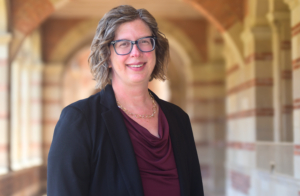CSW|Streisand Center Director Jessica Cattelino on national parks, truth-telling, and land relations

From AP News | Read Full Article Here
The Trump administration is reviewing educational materials in U.S. national parks, raising concerns that important parts of American history may be removed or softened. Following a 2025 executive order, the Interior Department has instructed the National Park Service to identify signage, exhibits, and publications that could be potentially “disparaging” to Americans. Instead, park content is expected to emphasize national achievements and the beauty of the land. Any flagged material must be edited or removed, with changes finalized by September.
The directive has sparked alarm among historians and advocates, who argue it risks sanitizing difficult but essential truths about the nation’s past. Jessica Cattelino, Director of UCLA’s Center for the Study of Women|Streisand Center and professor adds, ““The relationship between the United States and Indigenous nations has been fraught, violent, dispossessive and complex over the centuries, and the national parks are part of that story. To cut off parts of those stories because they might make someone uncomfortable, that’s a disservice to the ecological and cultural value of these lands.”
Critics stress that confronting these histories is central to the mission of public lands. “Slavery is not a side story,” said Cedric Haynes of the NAACP. “It was the engine of American growth for two centuries.” Similarly, Indigenous scholars warn that downplaying forced assimilation and land theft undermines decades of progress toward truth-telling in U.S. history. Environmental advocates caution that removing climate change content silences crucial education about the threats facing ecosystems like the Everglades.
While the administration frames the review as an effort to celebrate American greatness, many fear it amounts to rewriting history. As CSW|Streisand Center Director Jessica Cattelino noted, erasing uncomfortable truths does a disservice to both the lands themselves and the people whose lives and cultures are part of their story.


